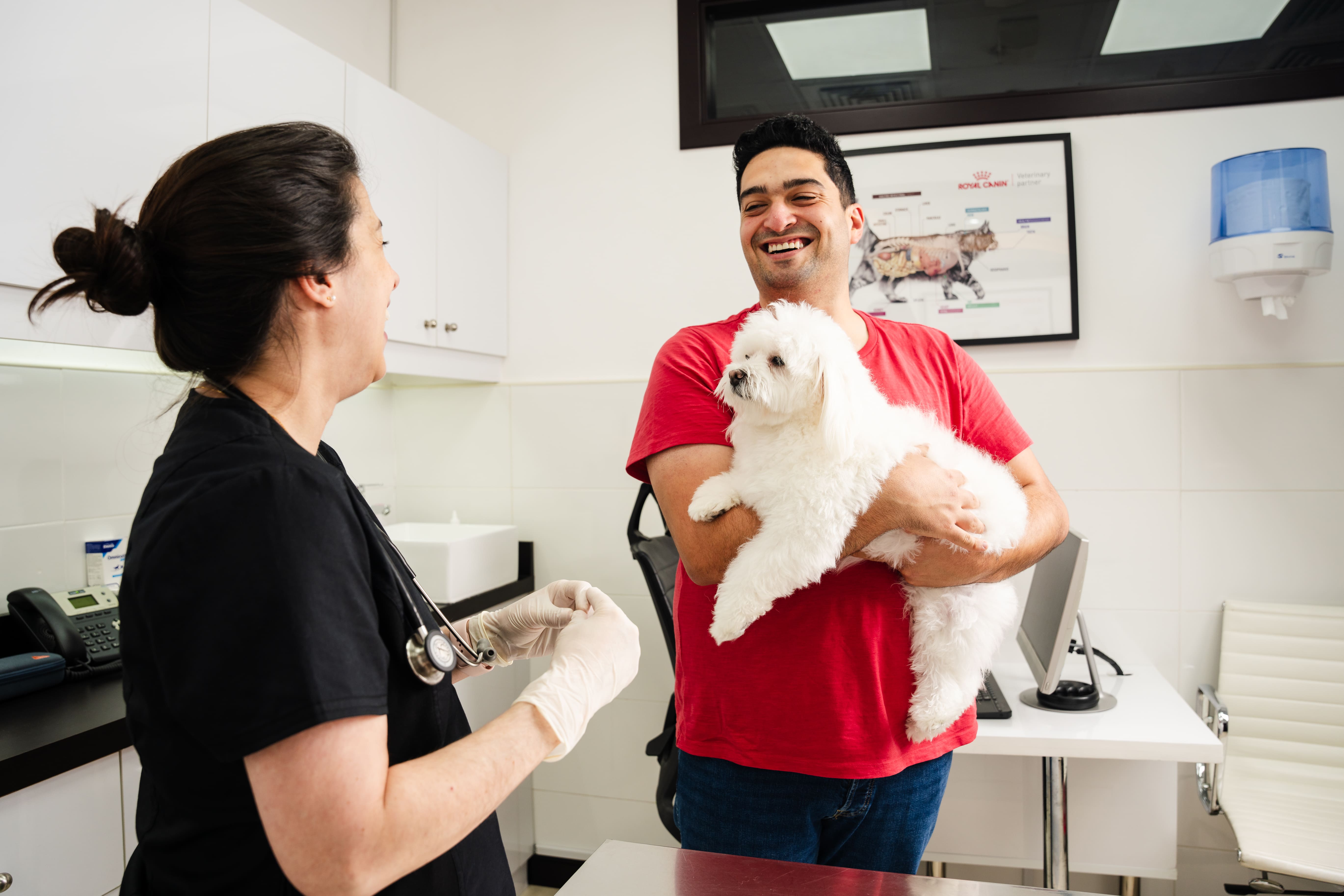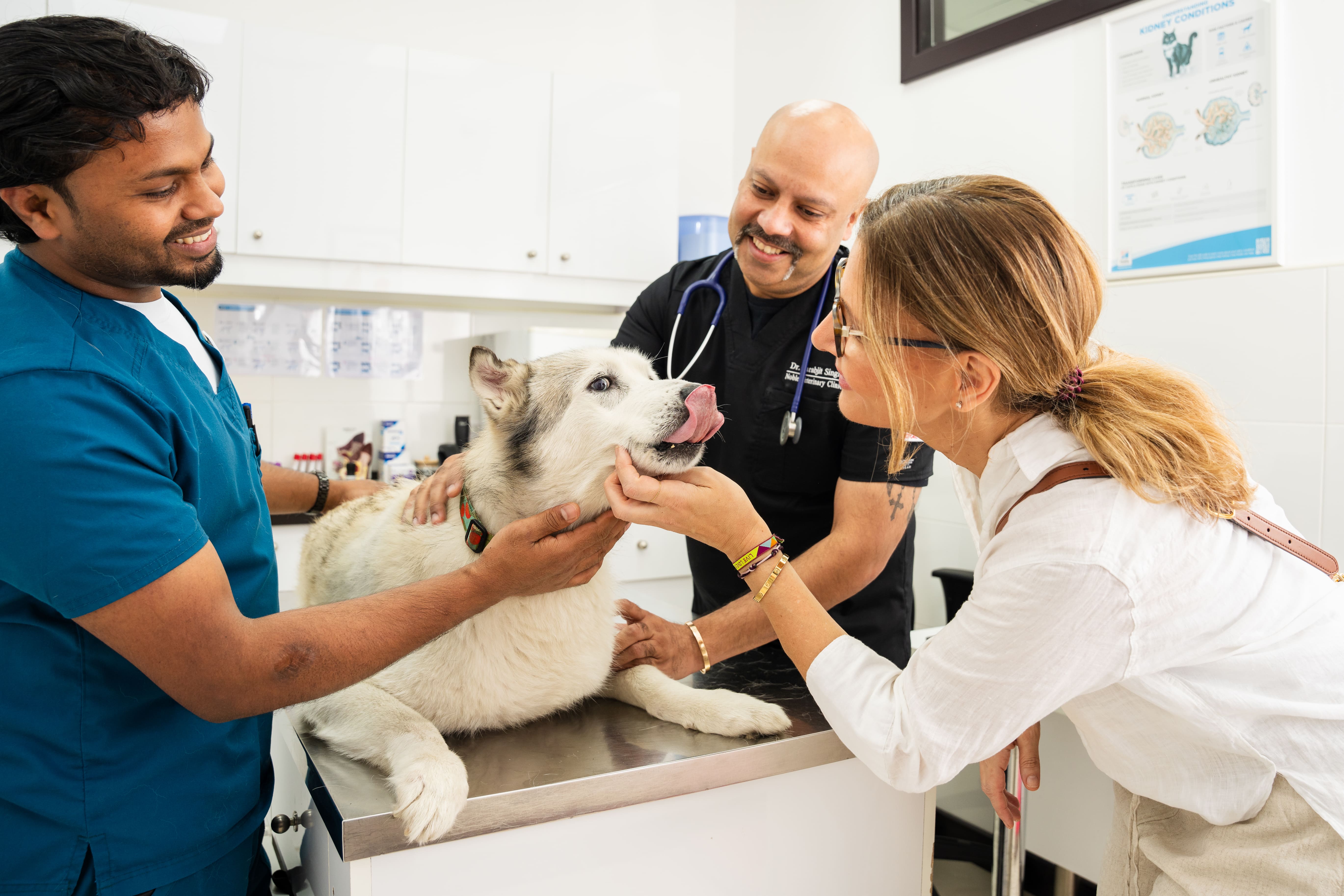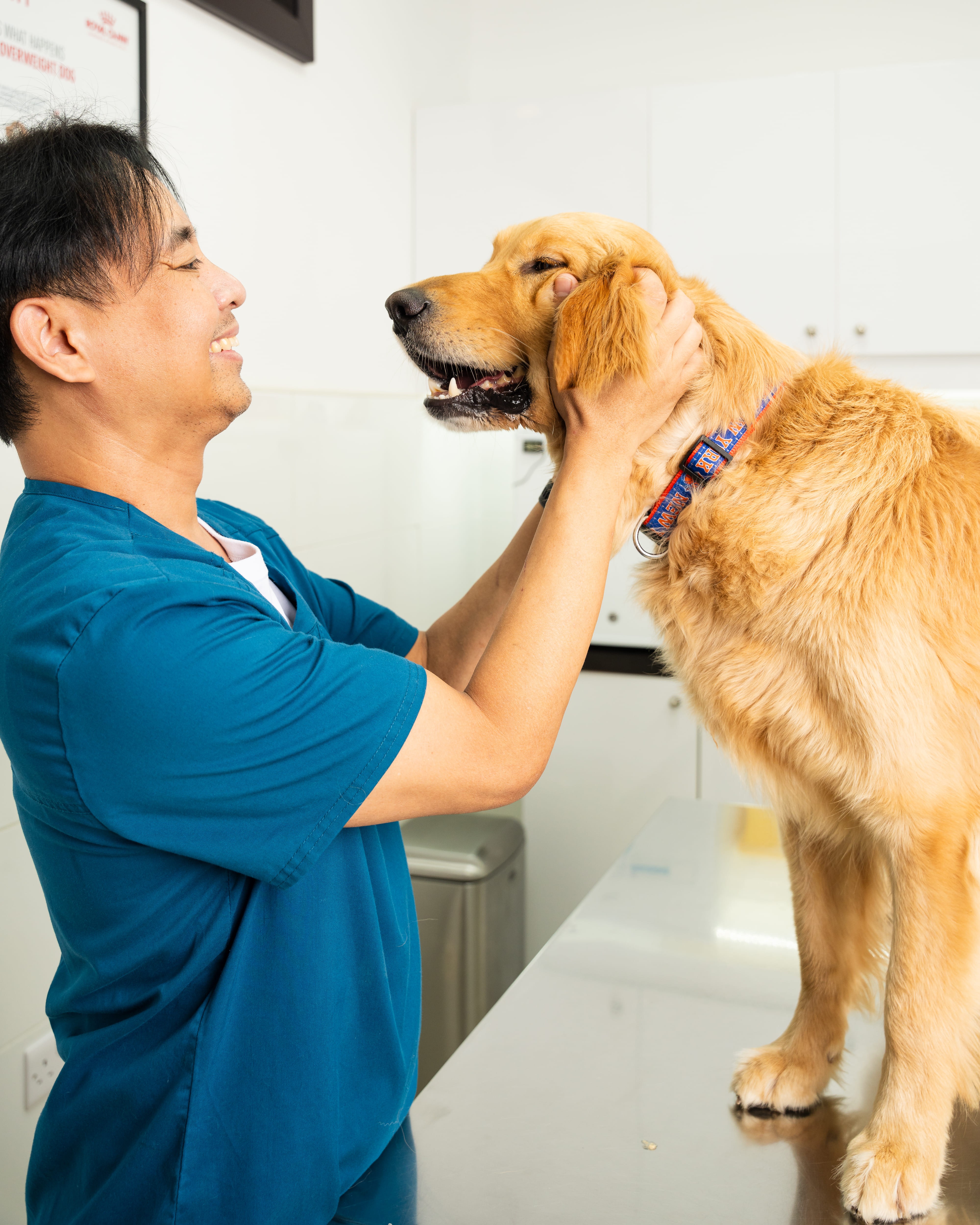21 فبراير 2025
With so many human foods being incorporated into pet diets, you might wonder whether spinach is good for dogs. This leafy green is often praised for its numerous health benefits in humans, but does it provide the same advantages for our pups?
The short answer is yes. Dogs can eat spinach. But since it’s not an essential part of a dog’s diet, it should be fed in moderation with the right preparation. Spinach has vitamins, minerals, and antioxidants that can support a dog’s overall health. It has nutrients like vitamin A, vitamin C, iron, and fiber, which contribute to a strong immune system, healthy digestion, and improved vision.
However, there are also some risks to consider, particularly due to the high oxalate content found in spinach.
In this blog, we’ll help you know more about this green, leafy vegetable so you can know just how good spinach is for dogs.
Why is Spinach Good for Dogs?
Spinach is often considered a superfood for humans because it has essential vitamins, minerals, and antioxidants. Many of these nutrients can also benefit dogs when given in moderation.
Here’s how spinach can support your dog’s health:
Rich in Essential Vitamins and Minerals
Spinach is a great source of vitamins A, C, and K. All of which are important parts of maintaining overall health.
Vitamin A supports eye health, skin, and coat quality.
Vitamin C helps reduce inflammation and boost immune function.
Vitamin K is good for efficient blood clotting and bone health.
Additionally, spinach contains important minerals like iron, calcium, potassium, and magnesium.
Iron helps transport oxygen and produce energy.
Calcium develops strong bones and teeth and helps with muscle function.
Potassium plays a key part in nerve, muscle, and heart function.
Magnesium is good for bone health as well as muscle and nerve function.
Supports a Strong Immune System
The antioxidants in spinach include lutein, zeaxanthin, and beta-carotene. These components help protect cells from damage caused by free radicals. They may also support the immune system and improve eye, digestive, and liver health. All in all, these contribute to better overall health, particularly in aging dogs.
Promotes Healthy Digestion
Spinach is high in dietary fiber. This fiber helps regulate digestion and prevent constipation. The fiber content in spinach supports a healthy gut by promoting regular bowel movements. It also helps absorb nutrients more effectively. However, too much fiber can cause tummy problems for our pups.
May Help Reduce Inflammation
Spinach contains anti-inflammatory properties, making it a potential food choice for dogs with arthritis or other inflammatory conditions. Flavonoids and phytonutrients can reduce joint pain and stiffness. This helps in improving mobility and comfort in older dogs.
Low in Calories and Fat
For dogs who need to keep a balanced weight, spinach is a great low-calorie treat. It provides nutrients without excess fat or calories, making it a suitable option for overweight or diabetic dogs when fed in controlled amounts.
Risks of Feeding Spinach to Dogs

Even if spinach has many health benefits, it also comes with some risks. Feeding spinach to dogs in large amounts or too frequently can result in digestive issues, kidney concerns, and nutrient imbalances.
Here are the potential risks of feeding spinach to dogs:
Oxalates and Kidney Health
One of the biggest concerns with spinach is its high oxalic acid content. Oxalates can bind to the calcium present in the body, creating calcium oxalate crystals. This makes it harder for dogs to absorb this essential mineral. Over time, excessive oxalate consumption can contribute to kidney stone formation and, in severe cases, kidney damage.
Some common signs of the presence of oxalate crystals include:
Frequent urination. Dogs may urinate more often, sometimes in small amounts, indicating possible bladder irritation or stone formation.
Difficulty urinating. Straining, discomfort, or whining while urinating can signal a blockage or kidney issues.
Blood in the urine. Pink or reddish-colored urine may indicate kidney stones or urinary tract irritation.
Increased thirst. Excessive water consumption could be a sign that the kidneys are struggling to filter out the waste.
Lethargy or weakness. Kidney dysfunction can lead to fatigue, loss of appetite, and reduced energy levels.
Vomiting or nausea. In severe cases, kidney problems can cause nausea and vomiting due to toxin buildup in the bloodstream.
Digestive Issues
Raw spinach contains a high amount of fiber, which can be challenging to digest for some dogs. A lot of fiber can lead to stomach upset, bloating, gas, or diarrhea. Cooking spinach can make it easier for dogs to digest, but it should still only be given in moderation to avoid gastrointestinal discomfort.
Sodium Content
Spinach naturally contains a moderate amount of sodium, which isn’t a problem in small quantities. However, if a dog eats large amounts of spinach, the sodium consumption could become excessive. This can potentially lead to dehydration or increased thirst. Dogs with heart disease or high blood pressure should have their sodium intake monitored.
Risk of Pesticide Exposure
Like many leafy greens, store-bought spinach may contain pesticide residues that can be dangerous for dogs. Always wash spinach thoroughly before feeding it to your pet, or opt for organic spinach to minimize pesticide exposure.
Allergic Reactions
While it’s not that common, some dogs can be allergic to spinach. You can notice this when your dog starts to have a couple of allergic reactions, such as itching and stomach problems.
How to Prepare Spinach for Dogs?

If you decide to feed your dog some spinach, it’s important to do so in a way that is safe, healthy, and easy to digest.
The best way to serve spinach to dogs is to lightly steam it. Steaming helps break down oxalates while preserving important vitamins and minerals. Raw spinach can be good sometimes, but only if you chop it up finely to avoid any digestive issues.
Spinach leaves can be tough and stringy, making them harder for dogs to chew and digest. Chopping spinach into small pieces makes it easier for your dog to process and reduces the risk of choking.
If you do decide to feed your dog spinach, make sure it’s plain and unseasoned. Also, make sure to avoid using butter and oils as they contain unnecessary fat that can cause stomach upset. Additionally, your dog's spinach should never include common food additives such as garlic and onions.
Mixing spinach with your dog’s regular food or blending it into a homemade meal can make it more enjoyable. You can use it as a meal topper for lean meats, eggs, or commercial dog food.
Spinach should be given in small amounts and not as a daily staple. A few leaves mixed into your dog’s regular food occasionally is enough to provide some nutritional benefits without overloading their system with oxalates. Dogs do not need spinach to stay healthy, so it should always be treated as an occasional supplement rather than a dietary necessity.
Good nutrition is the foundation of a healthy, happy dog. Feeding them the right food is a commitment to their well-being, energy, and longevity.
- Dr. Soheyl Simaei
Conclusion
Because of its health benefits, spinach is good for dogs. They can be a healthy addition to your dog’s diet when fed in moderation and prepared correctly. It has good amounts of nutrients to support your dog’s immune health, digestion, and overall well-being. However, due to its high oxalate content, too much spinach can be counterproductive.
The best way to offer spinach to dogs is in small amounts and properly prepared. Lightly steaming spinach removes some oxalates while preserving its nutritional value, making it easier for dogs to digest. It should always be plain, unseasoned, and free from harmful additives like salt, butter, garlic, or onions.
By feeding spinach to your dog responsibly, you can take advantage of the benefits while keeping your pup safe.
Subscribe to Our
Newsletter
Sign up for weekly pet health tips and insights from our veterinarians.




